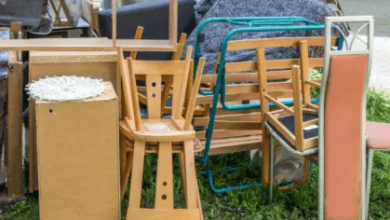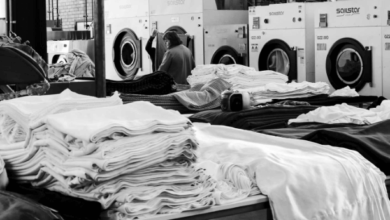Best Time of Year for Window Replacement Projects

Deciding when to tackle a window glass replacement project can feel like a puzzle. You want good weather for the installers, but you also want to save money and avoid long waits. Each season has its own set of pros and cons when it comes to getting new windows. Let’s break down what you need to consider so you can pick the best time for your home improvement.
Key Takeaways
- Spring offers moderate weather, ideal for installation, but can mean higher demand and prices.
- Summer provides pleasant working conditions, though it’s a peak season with potential for higher costs and longer waits.
- Fall sees reduced demand, potentially leading to quicker scheduling and better pricing, but weather can be unpredictable.
- Winter installations might offer discounts and faster service, with cold weather highlighting energy efficiency benefits, despite installation challenges.
- Regardless of the season, preparing your home and scheduling in advance are important steps for a smooth window glass replacement.
1. Spring Window Replacements
Pleasant Weather Conditions
Spring often brings mild temperatures, making it a comfortable time for installers to work outside. This pleasant weather means less stress on your home’s interior as windows are removed and new ones are fitted. You won’t have to worry about extreme heat or cold affecting the installation process or your home’s comfort.
Reduced Energy Loss
Replacing windows in the spring means you can say goodbye to those annoying cold drafts that likely plagued your home all winter. As the weather warms up, the temporary openings during installation won’t lead to significant heat loss. Plus, getting new, energy-efficient windows installed before summer hits means your air conditioning won’t have to work as hard to keep your home cool.
Potential for Increased Demand
Because spring is such a popular time for home improvements, you might find that contractors are busier. This means it’s a good idea to plan ahead and book your window replacement well in advance to secure your preferred installation date.
- Plan your project during the winter months.
- Contact contractors early to check availability.
- Be prepared for potentially longer wait times for scheduling.
While spring offers great weather for window replacement, the increased demand means booking early is key to getting the job done when you want it.
2. Summer Window Replacements
Summer is often seen as the prime time for home improvement projects, and window replacement is no exception. The most obvious perk? The weather. You’re generally looking at longer daylight hours and less chance of rain compared to spring or fall, which makes the actual installation process smoother for everyone involved. Plus, with warmer temperatures, you don’t have to worry as much about cold air rushing into your house while the old windows are out. It’s a good time to get those upgrades done before the cooler months really set in.
However, summer isn’t without its drawbacks. Because so many people have the same idea, contractors are usually booked solid. This means you might have to wait longer to get your project scheduled, and prices could be a bit higher due to the demand. Also, if you live in a really hot climate, having your AC working overtime while windows are being swapped out can be a real energy drain. And here’s a thought: you won’t really know if your new windows are keeping the drafts out until winter rolls around, which could mean discovering issues later than you’d like.
Pros of Summer Window Replacement
- Pleasant Weather: Generally warmer, drier conditions with more daylight hours for installation.
- Easier Scheduling (Potentially): While demand is high, some homeowners might be on vacation, opening up slots.
- No Immediate Draft Concerns: You won’t feel the immediate impact of cold air entering your home during the installation.
Cons of Summer Window Replacement
- Peak Demand: Contractors are busiest, leading to longer wait times and potentially higher costs.
- Heat Strain: Installation can make your home hotter, increasing AC usage.
- Delayed Draft Detection: Issues like drafts or condensation won’t be apparent until colder weather arrives.
If you’re in a hot climate, consider scheduling installations for early morning or late afternoon to minimize heat exposure inside your home during the process. This can make the experience more comfortable for both you and the installation crew.
Summer can be a great time to get new windows, especially if you’re looking to improve your home’s curb appeal before the end of the year. Just be prepared for the higher demand and plan ahead to secure a good contractor. You can often find good deals on windows during this time as companies try to move inventory before the fall season. Check out options for energy efficient windows to make the most of your investment.
3. Fall Window Replacements
Fall can be a really good time to get new windows installed. The frantic pace of spring and summer renovations usually dies down, meaning you might find it easier to book a contractor. Plus, the weather is often still pleasant enough for the work to be done without too much fuss. It’s a nice middle ground – not too hot, not too cold, and generally less busy than the peak seasons.
Benefits of Fall Window Replacements
- More Contractor Availability: With fewer people scheduling projects, you’re likely to get a better pick of dates and potentially faster service.
- Pleasant Weather: While not guaranteed, fall often brings mild temperatures, making it comfortable for installers and minimizing drafts into your home during the process.
- Potential for Deals: As demand lessens, some companies might offer seasonal promotions to keep their crews busy.
Potential Challenges in Fall
While fall is great, there are a couple of things to keep in mind. The days get shorter, which can sometimes limit how much work can be done outdoors. Also, you might encounter some unexpected rain or colder snaps, which could cause delays. If you’re dealing with minor issues like cracked panes, fall is still a decent time for basic glass repair before winter really sets in.
Preparing for Your Fall Installation
Even with milder weather, it’s smart to prepare your home. Make sure to clear the areas around your windows, both inside and out. If you have any delicate items nearby, consider moving them or covering them up. This helps the installation crew work efficiently and protects your belongings. Remember, new windows can significantly reduce heat loss, leading to lower energy consumption and substantial savings on utility bills [06ab].
Fall vs. Other Seasons
Compared to spring, fall offers similar mild weather but usually with less competition for installers. Summer is often too hot and busy, while winter can bring more extreme weather challenges. Fall strikes a good balance, making it a practical choice for many homeowners looking to upgrade their windows.
4. Winter Window Replacements
When you think about replacing windows, winter probably isn’t the first season that comes to mind. Most people want to avoid the cold, and honestly, who wants to deal with drafts when it’s already chilly? But, believe it or not, there are some pretty good reasons to consider a winter window replacement.
Scheduling and Availability
One of the biggest perks of going with winter is that contractors are usually much less busy. Spring and summer are peak renovation times, meaning you might be on a waiting list for months. In winter, you’ll likely find it much easier to book an appointment with your preferred installer. This can mean a quicker turnaround from ordering to installation.
Potential Cost Savings
Because demand is lower, some companies might offer special deals or discounts to keep their crews working through the colder months. It’s a good time to look for seasonal promotions that could save you some money on your project. Getting new, energy-efficient windows installed before the coldest part of winter really hits can also lead to immediate savings on your heating bills.
Installation Process in Winter
Professional installers are well-equipped to handle winter installations. They typically work on one window at a time to minimize heat loss from your home. They’ll also take steps to seal off the work area, protecting your indoor space from the cold and keeping dust contained. It’s not as disruptive as you might think.
Benefits of New Windows in Winter
New windows are fantastic for keeping your home warm and cozy. They seal out drafts and improve insulation, which is especially noticeable when it’s freezing outside. You’ll likely see a difference in your home’s comfort level and your energy bills pretty quickly.
Things to Keep in Mind
- Weather Delays: While installers are prepared, extreme weather like heavy snow or ice storms could still cause a delay. It’s good to have a little flexibility in your schedule.
- Preparation: Make sure the area around the windows outside is cleared of snow and ice as much as possible before the crew arrives.
- Interior Protection: While installers are careful, it’s wise to move any furniture or valuables away from the windows inside your home.
While the idea of installing windows in the cold might seem unappealing, the benefits of easier scheduling, potential cost savings, and immediate energy efficiency gains make winter a surprisingly good option for many homeowners. It’s all about being prepared and working with a reputable installer who knows how to manage the process effectively.
5. Scheduling Your Window Replacement
So, you’ve decided it’s time for new windows. Great! But when exactly should you book that installation? It’s not just about picking a date out of the blue; there are a few things to think about to make the whole process smoother.
First off, scheduling your window replacement well in advance is key, especially if you’re aiming for the popular spring or summer months. Contractors get booked up fast during these times, so the earlier you can get on their calendar, the better your chances of getting the dates that work for you. Think of it like booking a popular restaurant – you wouldn’t wait until the day before, right?
Preparing Your Home
Before the crew even shows up, a little prep work on your end can make a big difference. You’ll want to clear out the area around your windows. This means moving any furniture, decorations, or clutter that might be in the way. It’s also a good idea to make sure the installers have easy access to the windows themselves. This not only speeds things up but also helps prevent any accidental bumps or scrapes to your belongings.
Understanding Lead Times
Don’t forget that new windows aren’t usually sitting in a warehouse waiting for you. They often need to be custom-ordered based on your specific choices – size, style, color, the works. This ordering process can take several weeks, sometimes even longer, depending on the manufacturer and the complexity of your order. So, when you’re scheduling, factor in this lead time. You don’t want to be left waiting around with a gap in your wall!
Checking Local Requirements
Depending on where you live and the scope of your project, you might need to look into local building codes or permits. If you’re just swapping out old windows for new ones of the same size, it’s usually straightforward. But if you’re changing the size of the opening or making structural changes, you’ll definitely want to check with your local municipality. Getting this sorted beforehand can save you a lot of headaches down the road, like having to redo work if it doesn’t meet code.
Getting Multiple Quotes
It’s always wise to shop around. Most companies offer free estimates, so try to get at least three quotes from different contractors. This helps you compare not just prices but also the services they include and the types of windows they offer. Remember, the cheapest option isn’t always the best value. Look at reviews, ask about warranties, and see how responsive they are. Good communication from the start is usually a good sign.
6. Contractor Availability
When you’re thinking about getting new windows, one of the first things that might cross your mind is how easy it will be to get someone to do the work. Contractor availability can really change depending on the season. Think about it: most people want their windows replaced when the weather is nice, right? That usually means spring and summer are super busy times for these pros. If you’re looking to get your project done during those peak months, you’ll probably need to book your contractor pretty far in advance. Like, weeks or even months ahead if you want to snag a specific date.
On the flip side, if you’re flexible and don’t mind a bit of cooler or warmer weather, you might find it much easier to get a contractor lined up. Fall and winter are often less hectic for them. This can mean shorter wait times and maybe even a bit more wiggle room on scheduling. It’s not uncommon for companies to have more openings during these slower periods.
Here’s a quick rundown of what to expect:
- Spring/Summer: Peak season. Book early to get your preferred dates.
- Fall/Winter: Off-season. Generally easier to schedule, potentially with less wait time.
It’s always a good idea to call around and get quotes from a few different companies. Ask them about their current schedule and how far out they are booking. This will give you a realistic idea of what to expect and help you plan your project accordingly. Don’t be afraid to ask about flexibility or if they have any last-minute openings, especially if you’re considering an off-season installation.
Sometimes, contractors might even offer incentives during their slower months to keep their crews busy. So, while you might be dealing with less-than-ideal weather, you could potentially save some money or get a more convenient installation slot. It’s all about weighing the pros and cons for your specific situation.
7. Seasonal Promotions and Discounts
While the primary drivers for window replacement are usually efficiency and aesthetics, the timing can significantly impact your wallet. Many companies offer special deals and discounts during their slower seasons, which can be a great way to save money on your project. Keep an eye out for these opportunities to make your investment go further.
Off-Season Savings
Companies often have more availability and are eager to fill their schedules during the less popular months. This can translate into lower prices or bundled service deals. For instance, you might find that a contractor is more willing to negotiate on pricing or throw in extras like upgraded hardware when they aren’t swamped with demand.
Holiday Promotions
Certain holidays can also be a trigger for sales. While not always directly tied to window replacement, you might see general home improvement sales around major holidays like Memorial Day, Labor Day, or even Black Friday. It’s worth checking with local installers to see if they have any specific promotions running during these times.
Manufacturer Rebates
Beyond contractor discounts, manufacturers themselves sometimes offer rebates on new windows, especially those with high energy efficiency ratings. These rebates can stack up, providing even more savings. Always ask your installer about any available manufacturer incentives you might qualify for. Taking advantage of these seasonal promotions can lead to substantial savings on your window replacement project.
8. Weather Considerations
When you’re thinking about replacing your windows, the weather is a pretty big deal. It’s not just about your comfort while the work is happening, but also about how well the new windows seal and perform long-term.
Temperature and Caulk
The temperature really affects how caulk sets up. Ideally, you want temperatures between 40 and 80 degrees Fahrenheit for latex caulk. If it’s too cold, caulk might not stick right, and if it’s too hot, it might not cure properly. This can lead to cracks or gaps later on, which is the last thing you want.
Material Expansion and Contraction
Different window materials, like vinyl and aluminum, expand when it’s warm and shrink when it’s cold. If your windows are sealed with caulk during extreme temperatures, this natural movement can cause the caulk to split or crack. It’s best to avoid the absolute hottest or coldest days for this reason.
Climate-Specific Considerations
- Hot and Humid Climates: Summer can be tough. You’ll want windows with low U-factors and low-E coatings to keep the heat out. Vinyl frames are usually a good bet here because they’re good insulators and don’t need much upkeep.
- Cold and Snowy Climates: If it’s regularly below freezing, especially below -4°F, it can be tricky and even a bit dangerous for installers. For these areas, look for windows with a high Solar Heat Gain Coefficient (SHGC) to let in the sun’s warmth, and consider triple-pane windows for extra insulation. Vinyl frames are still a solid choice for their durability in the cold.
- Mild Climates: If you live somewhere with moderate weather year-round, you’ve got more flexibility. You still want to focus on energy efficiency, but you have fewer weather-related worries.
Installation Precautions
If you absolutely have to get windows installed when the weather isn’t ideal, there are things you can do. Make sure the installers have the right materials and techniques to handle the conditions. Offering them a warm drink in the cold or a cold one in the heat can be a nice gesture, as they’re the ones really dealing with the elements.
Choosing the right season can make the installation smoother and help your new windows perform better from day one. It’s all about balancing comfort, material needs, and the installer’s working conditions.
9. Energy Efficiency Benefits
New windows aren’t just about looks, though they certainly help with that. A big reason people upgrade is to make their homes more energy efficient. Think about it: old windows, especially those with single panes or cracked frames, are basically holes in your house where the conditioned air escapes. In winter, all that warm air you paid to generate just drifts outside. Come summer, the opposite happens – the cool air you’re trying to keep in escapes, and the hot outside air sneaks in. This makes your heating and cooling systems work overtime, which means higher utility bills and more wear and tear on your equipment.
Newer windows are designed with much better insulation. They often have double or even triple panes of glass, with special coatings and gas fills between them that slow down heat transfer. The frames and sashes are also better sealed. This means less energy is lost, so your furnace and air conditioner don’t have to run as much. It’s a win-win: your home stays more comfortable year-round, and you save money on energy costs.
Reduced Heat Transfer
Improved Insulation
Lower Utility Bills
Quieter Home Environment
Reduced HVAC Strain
New windows help keep your home at a more consistent temperature, which means your heating and cooling systems cycle less frequently. This not only saves energy but also extends the lifespan of your HVAC equipment. It’s a pretty significant benefit that often gets overlooked when people are just focused on the upfront cost.
10. Home Preparation for Installation
Getting ready for new windows is pretty straightforward, but doing a little prep work beforehand really makes a difference for everyone involved. It helps the installers do their job smoothly and keeps your home tidy. Think of it like getting your house ready for a big party – you want things to go off without a hitch.
Clear the Area Around the Windows
First things first, you’ll want to clear out the space right around the windows that are being replaced. This means moving any furniture, decorations, or personal items away from the windows. You don’t need to move everything out of the room, just the stuff that’s directly in the way. Also, trim back any bushes or tree branches that might be hanging too close to the windows outside. This gives the installers room to work and prevents accidental damage to your landscaping.
Protect Your Home’s Interior
To keep dust, paint, and debris from getting everywhere, it’s a good idea to cover up your floors and furniture. Drop cloths are great for this, especially on floors. For larger areas or valuable furniture, you might want to use plastic sheeting. This also helps keep your home’s temperature stable while the old windows are out and the new ones are being installed, which is a nice bonus.
Prepare Window Treatments and Security Systems
Take down any curtains, blinds, or other window coverings. They can get in the way and might even get damaged during the installation. If you have a home security system with sensors on your windows, remember to disable it before the crew arrives. You don’t want any false alarms going off while they’re working.
Secure Your Pets
It’s best to keep your pets in a separate room or area of the house, away from the installation zone. Installers are often moving heavy materials in and out, and it’s easy for a curious pet to get underfoot or wander into a hazardous area. Keeping them safe and out of the way makes the process smoother for everyone.
Proper preparation is key to a successful window replacement. It minimizes disruption, protects your belongings, and helps ensure the installation goes off without a hitch, leading to a better final result for your home.
So, When Should You Replace Your Windows?
Ultimately, picking the right time for window replacement really depends on what’s most important to you. Spring and summer often mean nicer weather for the work, but you’ll likely face more competition for installers and potentially higher costs. Fall can offer a good balance with fewer crowds and still decent weather, though you might deal with some falling leaves. Winter might seem cold, but it can mean better deals and quicker scheduling, plus those new windows will really help keep the heat in. No matter when you decide to do it, getting new windows is a big project, but it can make a real difference in how your home looks and feels.
Frequently Asked Questions
Why is spring considered a good time for window replacement?
Spring is often seen as a good time because the weather is usually mild, not too hot and not too cold. This makes it comfortable for installers and helps prevent your home from losing too much energy while the work is being done. However, because many people think spring is the best time, you might have to wait longer for an installer, and prices could be higher.
What are the pros and cons of replacing windows in the summer?
Summer has nice weather, which means less chance of rain delaying the work. Also, longer daylight hours help installers finish faster. On the flip side, summer is a very busy time for window replacements, so you might face higher costs and longer waits for scheduling. Plus, very hot days can make it uncomfortable if your home is open to the outside for too long.
Is fall a good season for window replacements?
Fall can be a good option because the demand for window replacements usually goes down after the summer rush. This could mean shorter wait times and maybe even better prices. The weather is often still pleasant, but it’s getting cooler, which can remind you how important energy-efficient windows are. The main downsides are the possibility of bad weather and shorter days, which might slow things down.
Are there any benefits to replacing windows in the winter?
Winter might surprise you! While it’s cold, demand is usually at its lowest, meaning you might get quicker service and potentially lower prices or special deals. The cold weather also really shows you how well your new windows are sealing in heat. The main worry is the cold getting into your house during installation, but professional installers have ways to minimize this, like working on one window at a time.
How far in advance should I schedule my window replacement?
It’s a good idea to book your window replacement well in advance, especially if you’re aiming for popular times like spring or summer. This helps make sure you can get an installer when you need one and avoid long delays. Planning ahead also gives you more time to choose the right windows and installers.
Do window companies offer discounts during certain times of the year?
Yes, many companies offer special deals or discounts during slower periods, which often include the late fall and winter months. This is when they have more availability and want to attract customers. It’s always worth asking about any seasonal promotions when you get quotes.






